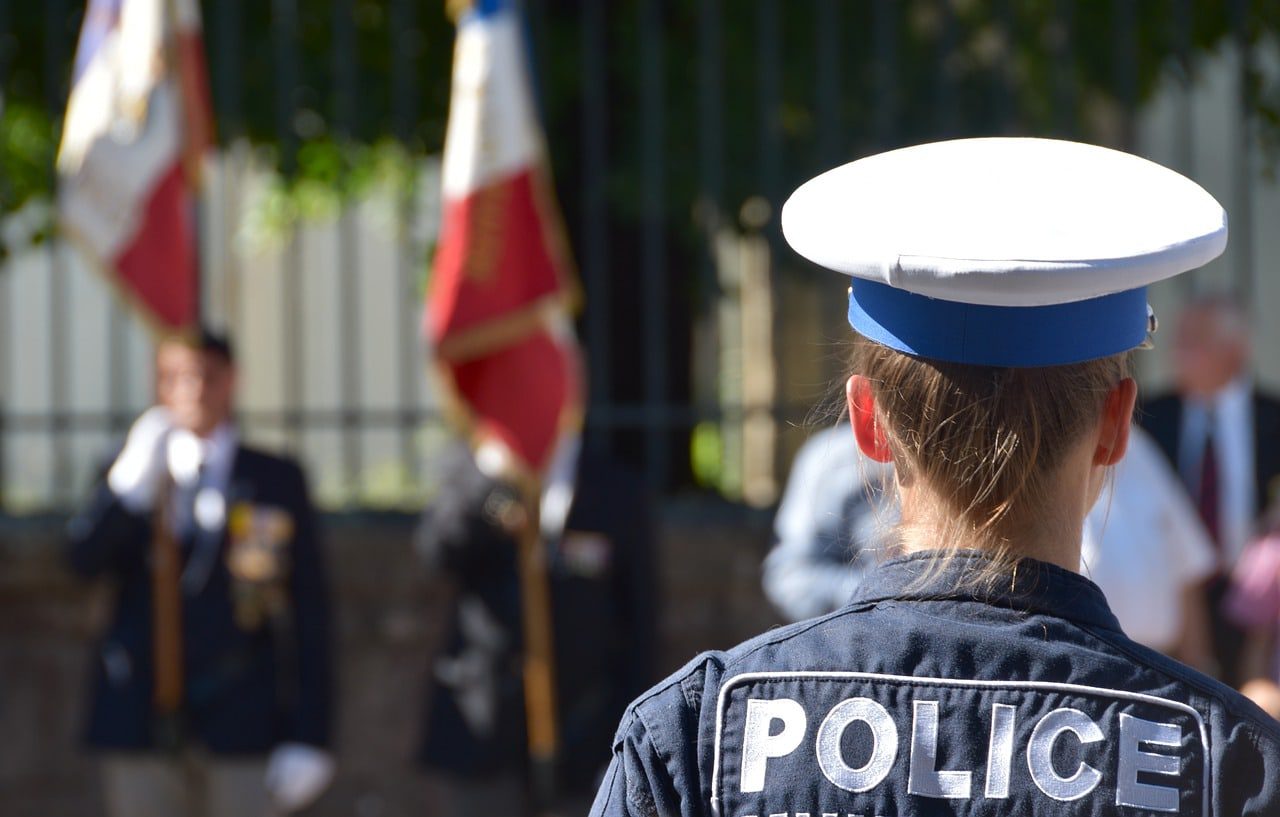
Since the beginning of 2022, an unprecedented number of suicides have been recorded in the ranks of the French police.
The national police force, which is part of the Ministry of the Interior, has already registered fourteen suicides, i.e., about two per week.
The suicides concern police officers of all ages: a young woman of 23 in Lille; a man of 61 in Besançon. Recently, the media’s attention has been drawn to one particular suicide victim, a young man of 22, called Pierre. He graduated at the top of his class at l’école de Montbéliard, and had chosen to be posted to the northern districts of Marseille, one of the most difficult areas in the country, plagued by violence and drugs. He gave an interview to Le Parisien when he left the school in the summer of 2021. The press praised his courage, passion, and commitment, but he committed suicide a few months after his arrival in Marseille.
For French police, the way 2022 is unfolding is catastrophic, since the suicide numbers will most likely supercede the average of 30-40 victims per year. This year may very well eclipse 2019, the year that recorded the highest rate so far, with a total of 59 over the course of the year, averaging more than one per week.
The causes of this wave are officially difficult to determine.
Regardless, Minister of the Interior Gérald Darmanin has ruled out professional suffering: on Wednesday January 26th, he explained that most police suicides had “a direct link with the personal and not professional life of these people.” According to the minister, police officers are more likely to commit suicide because they have a service weapon at their disposal.
This explanation is contested by Christophe Girard, founder of “SOS Police en détresse,” an association for mutual aid between police officers. Indeed, the minister’s analysis does not stand up to the test of facts: on January 18th, a public security guard was found hanged in Lille; on January 21st, a member of the special mobile French police force (CRS) threw himself under a train near Saint-Vincent-de-Paul in the Landes region; the police department’s computer technician jumped from the seventh floor of the police station in Rennes. None of these victims used their service weapons to kill themselves.
Intuitively, it seems obvious that working conditions directly contribute to accelerating this tragedy. More than 6,000 telephone calls were received in 2021 by “SOS Police in Distress.” Many of the diagnoses point to “post-traumatic stress disorder by accumulation” which “leads to depression.” The working conditions, the pace, the shifting hours of police work can have repercussions on family life and affect the relationship balance between couples. The divorce rate in the police, as elsewhere, is high.
Contrary to Interior Minister Darmanin’s assessment, the problem is primarily professional. Didier Crassous of the Alternative Police-CFDT Union had this to say to the local press:
The hours, the insults, the way of working…there’s no limit to the pressure we face. All this means that we are under permanent pressure which can trigger psycho-social risks. We have a hierarchy that squeezes our colleagues like lemons. There is no longer any peace in your work. After all that, if you have extra-professional difficulties, it can be fatal.
Conflicting opinions on why suicides have increased have produced disparate means of addressing the problem. In an attempt to alleviate the disaster, the minister of the Interior announced the recruitment of twenty or so psychologists, who will be deployed in the places deemed “the most difficult in the national police force”—a clearly unidimensional plan. Alternatively, Christophe Girard seeks to imitate the programme deployed in Montreal, Canada, “Together for Life.” The suicide prevention programme in place for Montreal police officers has drastically reduced the number of suicides over the past twenty years. Based on the Canadian model, the director general of the National Police Force plans to set up a network of 2,000 sentinels—as opposed to the 40 now present, on an experimental basis—to be responsible for detecting any personal, professional, or family difficulties.
But prevention and support cannot solve everything. The fact is that the police have been particularly badly treated for many months. They endured the Gilets Jaunes protests at the end of 2018 and in 2019. Then the pandemic arrived, and the police saw their mission transformed, forcing them to track down health dissenters, to control vaccination passes, and check the accuracy of tests and vaccines at shops, restaurants, bars, and cafes. They have thus been placed in the front line of missions that are not popular, and often to the detriment of their trained purpose to maintain order and deal with delinquency, a crime that has exploded in the country in recent months. They have been targeted and stoned in the suburbs or accused of violence and racism, all of which generates feelings of frustration, powerlessness, and lack of legitimacy that, for the moment, are not going to disappear.
